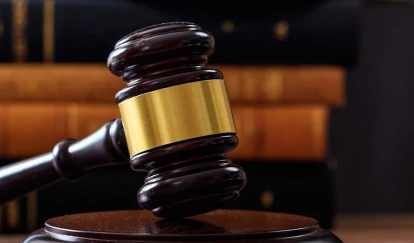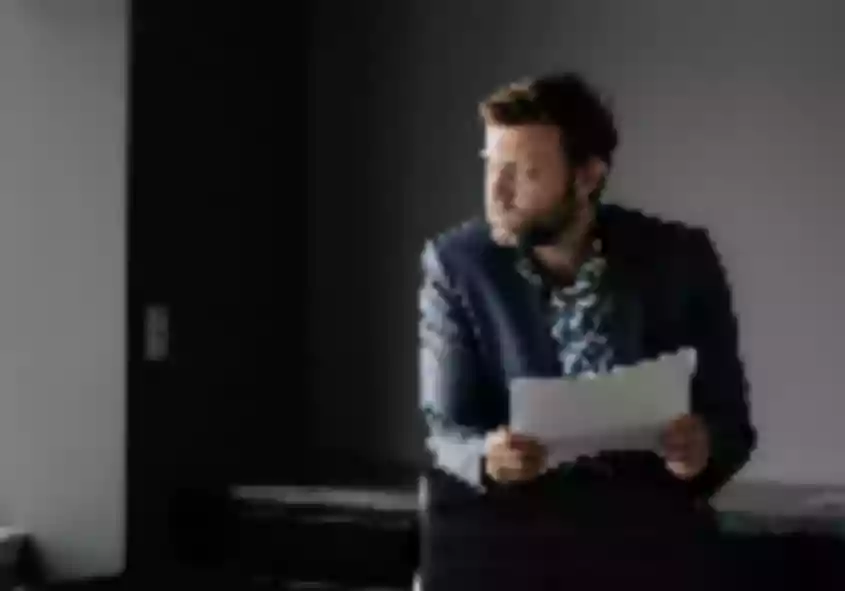
Share This Article
Centuries-old laws can turn out to be interesting, bizarre, humorous, or even urban legends. Sometimes the origin stories of these laws are more interesting than the laws themselves. Outdated laws often stay on the books long past their expiration date simply because there is no reason to expend the effort to repeal them. Learn more about these five interesting Virginia laws.
5 Strange Virginia Laws Most People Don't Know Exist
Learning about strange Virginia laws, rules, and regulations can be fun and interesting. It can give you insight into some fundamental rights when the laws were first enacted. It can also enlighten you about certain basic rights today.
Over time, the rule of law changes and evolves. Often, these changes focus on the safety and welfare of the location's citizens. Some weird laws in Virginia may only have been enforced for a short period.
1. VA Residents Can't Use Foul Language Against Each Other
Virginia's law against swearing dates back to August 3, 1776, when George Washington issued an Order Against Profanity. The General, who would become the first U.S. president 13 years later, intended the order to prevent the vice of swearing among his soldiers.
Washington considered swearing a "foolish and wicked practice," which he was dismayed to see growing into fashion during the American Revolutionary War. He considered the use of foul language a sin so basic that he claimed, "Every man of sense and character detests and despises it."
In 1971, the U.S. Supreme Court restricted Virginia and other states from regulating speech for the purpose of public civility in the landmark case Cohen v. California.
Cohen was convicted of violating a California law against disturbing the peace by offensive conduct by wearing a profane message on his jacket while inside a California courthouse. The lower court sentenced him to 30 days of imprisonment.
In the 5-4 Supreme Court majority opinion for Cohen, Justice John Marshall Harlan famously wrote, "One man's vulgarity is another's lyric," as he explained that a four-letter word is an insufficient justification for states to restrict free speech.
In 2020, Virginia's governor signed House Bill 1071 into law, repealing George Washington's order. Effective July 1, 2020, Virginia no longer prohibits profane language.
2. Animals Can't Be Hunted on Sundays, Except for Raccoons
Under Virginia Code, hunting, transporting, selling, trapping, or possessing wild animals and birds is unlawful except as permitted. This law entered the Virginia code in 1950 and was most recently amended in July 2022 with the passage of Senate Bill 8. It specifies that hunting or killing any wild animal, including nuisance species, is not permitted within 200 yards of a place of worship on Sundays.
Before the recent amendment, however, the Virginia Code prohibited killing or hunting wild animals on Sundays, except for raccoons. Raccoons could previously be hunted until 2 a.m. on Sunday mornings.
Many states have blue laws, also known as Sunday closing laws, uniform day of rest laws, and Sabbath laws. These are laws that ban specific activities on certain days. These laws usually originated during colonial times to protect Christian values.
Other common activities restricted by blue laws today include alcohol sales and consumption.
3. Women Can't Be Tickled, but Men Can
Not all stories of strange laws in Virginia are true. Some websites claim it is against the law to tickle women in Virginia but not men. However, these websites fail to offer citations to back up this claim.
Searching the Code of Virginia for the word "tickle" does not bring up any results suggesting this law exists. Similarly, a search of Virginia's case law reveals no hints as to the existence of a ban on tickling women, nor does a general search bring up reputable information on this supposed law.
There are certainly some incredible Virginia state laws currently or previously on the official record. However, it does not appear that the Virginia government has made the tickling of women illegal.
4. Drivers Must Honk When Passing Another Vehicle
According to the Code of Virginia before an amendment in 2020, drivers were required to give way to motor vehicles passing on the right-hand side if the overtaking driver issued an audible or light signal.
However, it is not and never was a law that drivers must honk as they pass another vehicle. Furthermore, in 2020, the government amended the sections noted above, removing the mention of audible signals. The current statute does not mention honking or anything similar.
While many funny laws do currently or have existed across the U.S., it is important to remember that not everything you read online is factual — this also holds true for laws.
5. Children Can't Trick-or-Treat on Halloween
Some parts of Virginia have interesting trick-or-treating laws. Several areas have placed legal restrictions on who can and cannot trick-or-treat, including the following locations:
- Chesapeake, VA
- Hampton, VA
- Newport News, VA
- Norfolk, VA
- Portsmouth, VA
- Poquoson, VA
- Virginia Beach, VA
- Williamsburg, VA
- York County, VA
For example, consider the following local regulations:
- Newport News, Virginia, allows trick-or-treating only for children 12 years old or under. Children caught trick-or-treating after this age can be charged with a Class 4 misdemeanor.
- Portsmouth, Virginia, allows the activity only between 5 p.m. and 8 p.m., and only for children 12 years or younger.
- Chesapeake, Virginia, also forbids trick-or-treaters over the age of 12. Older children caught partaking in the holiday can be charged with a misdemeanor and sentenced to up to six months in jail, a $100 fine, or both.
Despite these laws' existence, one city stated that it had not enforced its trick-or-treating law in its more than 45-year lifespan.
Will You Be Punished for Breaking These Laws?
Most strange laws that remain on the books of any U.S. state are largely ignored. However, if you have questions about any laws, it is best to speak with a lawyer who deals with similar issues.
The Commonwealth Law Group can answer your legal questions and offer legal services to guide you through your issues. Contact Commonwealth Law Group today for a free consultation.
If you have been injured at work or through the negligence of another individual or entity, contact us at (804) 999-9999 or or use the form below to connect with our legal team. We will fight to get you the justice you deserve.
